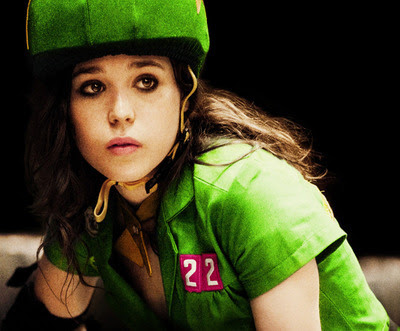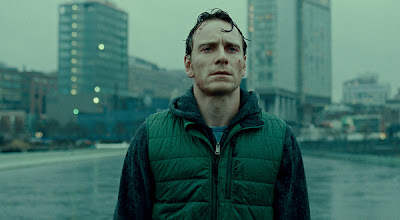Thursday, 20 June 2013
Wednesday, 19 June 2013
LES MIS
 I really thought that after the Oscar buzz died down a little, so would the obsession over that pig-slop of a movie Les Mis, but I suppose I was wrong. Currently being sold in HMV for a bargain deal of £15.99 is the opportunity to get the most boring three hours of your life over and done with.
I really thought that after the Oscar buzz died down a little, so would the obsession over that pig-slop of a movie Les Mis, but I suppose I was wrong. Currently being sold in HMV for a bargain deal of £15.99 is the opportunity to get the most boring three hours of your life over and done with. The main problem with Les Miserables, contemptuously dubbed 'The Glums' by critics when it first opened in the theatre, is the lack of an engaging plot, any decent music, or remotely believable acting. Russell Crowe plods after Hugh Jackman looking more and more like an obnoxious potato, whilst ‘Éponine’ is an ever-present third wheel in Eddie Redmayne and Amanda Seyfried’s romance. The actors perform with an embarrassing intensity that quickly spirals into absurdity.
The exception to the unbearably self-conscious melodrama is Anne Hathaway’s performance as the ill-fated Fantine, whose brief half-hour on screen is truly heart-breaking. However, this moment is short-lived: as the film meanders drearily on, we are offered bursts of relief in the form of Helena Bonham Carter and Sacha Baron Cohen as a pair of lovable con artists who were given all the best lines. Gazing at Eddie Redmayne’s face can occupy you for a while, but after an hour or two even this grows tiresome. There’s no doubt that each actor had something very profound and passionate to express. It just isn't clear what. As Russell Crowe leapt off a bridge, landing with a satisfying crunch below, I almost jumped out of my seat cheering. Perhaps that's the real problem: the overwhelming well of emotion present in every trembling note makes you unable to form any connection with the characters.
Although it is unlikely that you haven't watched it yet, I would STRONGLY advise you NOT TO SEE THIS FILM. I am a musical aficionado: I can recite any Chicago number on the spot, and have the Cole Porter collection stashed away under my bed like porn. But what I WILL NOT STAND FOR are musicals that pretend to be insightful and thoughtful, brimming with messages of unity and righteousness, when in fact they are stories of self-pitying caricatures of people, with unrealistic objectives and negative attitudes. Give me Singin’ In The Rain over Les Mis any day. I don’t need my silliness handed to me with a straight face.
Tuesday, 18 June 2013
WHIP IT
 This movie, Drew Barrymore's directorial debut, is a messy jumble of old parts: sulky teen, high school troubles, first boyfriend - but its disorganisation and lack of coherence is its charm. The story of small-town outcast Bliss (Ellen Page), who stumbles on a roller derby league, is told with a meandering self-mocking quirkiness and thoughtfulness. It doesn't pretend to carry any life-changing message of self-acceptance, and it doesn't, but it does gently give a sweet and humorous portrayal of being a teenager.
This movie, Drew Barrymore's directorial debut, is a messy jumble of old parts: sulky teen, high school troubles, first boyfriend - but its disorganisation and lack of coherence is its charm. The story of small-town outcast Bliss (Ellen Page), who stumbles on a roller derby league, is told with a meandering self-mocking quirkiness and thoughtfulness. It doesn't pretend to carry any life-changing message of self-acceptance, and it doesn't, but it does gently give a sweet and humorous portrayal of being a teenager.Ellen Page, who seems to have mastered being totally charming just by being her weird and wonderful self, is twinklingly original, her eccentricity brought into focus by a wonderful supporting cast, including Kristen Wiig, Alia Shawkat, Juliette Lewis and Drew Barrymore herself, who effortlessly fill the gaps in the script with their own charisma.
By no means perfect, the film seems to skate over clichés just through the bright likeability of its cast. It finishes as abruptly as it began, little resolved, but leaving you glad you indulged in this odd micro-universe of skates and food fights and 'Smashley Simpsons' Barrymore threw you into.
Monday, 17 June 2013
Stoker - A Dark Fairy Tale
Stoker is almost a perfect film. Each frame is a stylish and delicately assembled image, filled by Matthew Goode's magnetic stage presence and Mia Wasikowska's fragile intensity. Nicole Kidman is surprisingly spot on as India's brittle yet softly-spoken mother.
 This is a story about blood: the director Chan-wook Park questions the uneasy balance between the influences of nature and nurture. But it also tells the story of India's coming-of-age and her sexual awakening, albeit in an unusual fashion. In her words there is an insightful and perceptive truth about the development of her indentity: 'I'm not formed by things that are of myself alone. I wear my father's belt tied around my mother's blouse, and shoes which are from my uncle. This is me. Just as a flower does not choose its color, we are not responsible for what we have come to be. Only once you realize this do you become free, and to become adult is to become free.'
This is a story about blood: the director Chan-wook Park questions the uneasy balance between the influences of nature and nurture. But it also tells the story of India's coming-of-age and her sexual awakening, albeit in an unusual fashion. In her words there is an insightful and perceptive truth about the development of her indentity: 'I'm not formed by things that are of myself alone. I wear my father's belt tied around my mother's blouse, and shoes which are from my uncle. This is me. Just as a flower does not choose its color, we are not responsible for what we have come to be. Only once you realize this do you become free, and to become adult is to become free.'The story line is a little directionless at times, and the Gothicism begins to spiral into absurdity, but director Chan-wook Park has produced a film that beats with a palpable intensity and elegance, the tension rising slowly but breathlessly towards a hideous climax.
Sunday, 16 June 2013
How To Lose Friends And Spend A Sunday Afternoon
 How To Lose Friends And Alienate People, based on the semi-autobiographical book by Toby Young, is about the outspoken and frustrated ‘hack’, Sydney (Simon Pegg), who has grown used to being abused by celebrities in London (‘Everyone hates us, and WE DON’T CARE’), although pretty eager to rub shoulders with them at the same time. He is offered the job of his dreams at a New York magazine by the hilarious Jeff Bridges, but when he arrives is frustrated that he is expected to pander to the rich and famous.
How To Lose Friends And Alienate People, based on the semi-autobiographical book by Toby Young, is about the outspoken and frustrated ‘hack’, Sydney (Simon Pegg), who has grown used to being abused by celebrities in London (‘Everyone hates us, and WE DON’T CARE’), although pretty eager to rub shoulders with them at the same time. He is offered the job of his dreams at a New York magazine by the hilarious Jeff Bridges, but when he arrives is frustrated that he is expected to pander to the rich and famous. The script is funny, although it borders on ludicrous as you watch in horror as Young alienates every single person around him with his blunt British ways. However, it strikes truer to home than ‘The Devil Wears Prada’, somehow avoiding clichés and being embarrassing despite the slapstick humour. Pegg as usual brings real charisma to the film, whilst Kirsten Dunst, his prickly co-worker, shrewdly captures that American inability to appreciate British humour, watching Young's exploits with growing distaste and horror. Watch out for Megan Fox, playing a superficial Hollywood strumpet, and Danny Huston, who plays Sydney’s boss, and being fantastically ghastly. There are good cameo appearances by Chris O’Dowd (hmm), James Corden and Thandie Newton.
Saturday, 15 June 2013
SHAME
 Shame,
directed by Steve McQueen, stars Michael Fassbender as Brandon, a sleek,
single
Shame,
directed by Steve McQueen, stars Michael Fassbender as Brandon, a sleek,
single However, Shame is not just a film about a dysfunctional relationship between siblings: it is a ruthless and cold look at sex addiction. Brandon’s social life, or lack thereof, allows him to indulge in his heavy dependence on prostitutes, porn and casual sex. His sister Cissy is perhaps more damaged than he is: it becomes clear that whilst Brandon has created a life that allows him to avoid expressing his emotions, Cissy seems unable to contain them. McQueen gives the audience the freedom to guess at the upbringing of Brandon and Cissy, and what trauma caused them to be the way they are. Under all this lies an ice-cold layer of shame.
 Stylishly shot, each scene of this film is littered with meaning and tinted with Brandon’s repressed rage, self-disgust and helplessness. His every emotion is restrained and controlled, making it both uncomfortable and powerful to watch. In one scene, Cissy performs a slow, stilted rendition of New York, New York: heartbreakingly flawed and lonely, we are able to scrutinize every expression on her face in a long, unbroken shot.
Stylishly shot, each scene of this film is littered with meaning and tinted with Brandon’s repressed rage, self-disgust and helplessness. His every emotion is restrained and controlled, making it both uncomfortable and powerful to watch. In one scene, Cissy performs a slow, stilted rendition of New York, New York: heartbreakingly flawed and lonely, we are able to scrutinize every expression on her face in a long, unbroken shot.
Shame
is a beautifully shot film, unaffected and full of truth. Fassbender is
fearless, and utterly convincing in his obsessive, unbreakable cycle of
unhappiness. Mulligan is similarly brave, beautifully evoking the fragile
loneliness of Cissy that makes the story so
poignant and frank. Without pretension or artificiality, McQueen has created a
film that follows the intertwined lives of two individuals, equally but very differently unhappy,
gently asking us whether we can judge either of their actions, when they are only reflections of our society.
gently asking us whether we can judge either of their actions, when they are only reflections of our society.
Subscribe to:
Comments (Atom)




